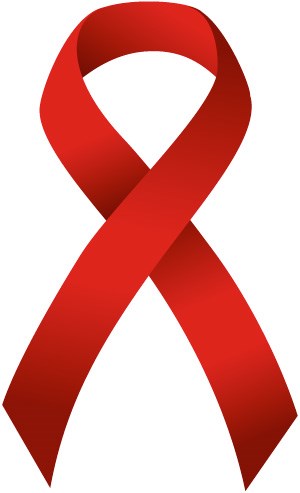There is a great deal of misinformation and misunderstanding when it comes to human immunodeficiency virus, or HIV, as it is more commonly known. Education and awareness of the virus are extremely important for all of us. By understanding more about HIV, everyone in our community can help to break down the stigma and fear that seem to be the main reasons individuals may not get tested or seek treatment. Armed with the right information, we can understand how the virus is transmitted and prevent the risk of infection.
An estimated 1 in 5 people living with HIV in Canada are unaware of their HIV infection. People with HIV before the AIDS stage do not usually have symptoms, although some people may experience flu-like symptoms for a short period a few weeks after the infection. The only way to know for sure whether you have HIV is to get tested.
In Saskatchewan testing is recommended for all residents 13 to 70 years of age who do not know their HIV status.
HIV is a virus that has the ability to weaken the immune system. Without treatment, HIV causes the defense system to crumble and the immune system can no longer defend the body. This stage is known as acquired immunodeficiency syndrome (AIDS). At this stage, the body becomes very susceptible to several infections.
HIV is a treatable disease. With the appropriate treatment, a person with HIV can lead a healthy, productive life and treatment suppresses the virus resulting in a tremendous reduction of further transmission. In this, the treatment of HIV is actually part of the prevention, as it not only benefits the individual with HIV but also the entire community in preventing further spread of the disease.
There is currently no vaccine to prevent HIV. Significant advances in the care and treatment of HIV have been made which are very effective and available to everyone who needs it, free of charge in Saskatchewan.
Anyone has the potential to be affected by HIV, no matter your age, gender, race, sexual orientation or ethnic origin. You can get or transmit HIV only through specific activities, www.SunriseHealthRegion.sk.ca most commonly, through unprotected sexual behaviours and by sharing needles or other drug injection equipment. HIV can also be passed from an infected mother to her baby during delivery or through breastfeeding. You can have HIV without knowing it and, at the same time, be passing it along to others.
“We also need to talk about ways in which HIV is not transmitted because that is important,” states Dr. Mandiangu Nsungu, Consulting Medical Health Officer with Sunrise Health Region.
HIV awareness and testing is important for everyone and not only for those deemed at high risk. Misinformation and not being tested are the biggest barriers to HIV prevention, treatment, care and support.
The health region offers confidential point of care testing that can be requested as part of
routine blood work during regular medical clinic visits or visits to the Emergency Room.
“In terms of places where to be tested, I would say that every door is the right door,” says Dr. Nsungu. To request an HIV test, individuals are encouraged to contact their family physician, nurse practitioner, the Turning Point Program or local Public Health Office.
Individuals can also visit any emergency room and request the test. “In the past couple of years, access to testing has become more easily available,” states Dr. Ibrahim Khan, Regional Medical Health Officer with Health Canada. “One of the big advancements in the diagnosis of HIV/AIDS is that we now have tests able to detect HIV within two weeks to one month after exposure.”
It is normal to experience intense emotions when asking or being asked by a medical professional to go for testing and also when waiting for test results. Don’t let fear and worry keep you from knowing your HIV status to protect your health. Information and supports are available throughout the process.
Health Canada and Sunrise Health Region are working with communities to get the word out about the importance of being tested. Everyone should know their HIV status and it is as simple as asking for a test. It is crucial to test people and diagnose them as early as possible in the disease process.
Help is available in Sunrise Health Region to confidentially support individuals who are interested in knowing their HIV status and for information on how to prevent HIV and protect their health. Counseling and case management are made available to assist clients in navigating the health care system. Harm reduction programs also provide support to people who cannot, for whatever reason, discontinue drug use. Information and assistance are available by contacting the www.SunriseHealthRegion.sk.ca Turning Point Program at 306-786-0637; a client-centered, harm reduction and strengthbased program that meets individuals and helps those affected by HIV. Excellent resources are also available by contacting Mental Health and Addictions Services at 306-786-0558 or 1-888-989-8444.
For more information, visit our website at www.sunrisehealthregion.sk.ca and click the “HIV Info and Testing” link in the “Health Services” menu.




